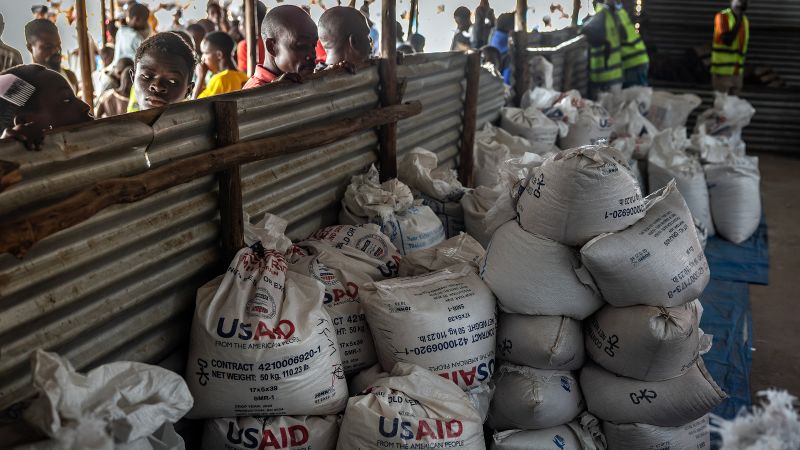
Tennessee teens who engage in bullying may soon face a new consequence: losing their ability to drive. A recently enacted state law allows courts to suspend a minor’s driver’s license for up to a year if they are found guilty of bullying or cyberbullying. This initiative is part of a broader effort to curb bullying in schools and promote a safer environment for students. Meanwhile, several significant global and national developments are unfolding.
USAID Funding Cuts: A Looming Humanitarian Crisis
The dismantling of the US Agency for International Development (USAID) under President Donald Trump’s administration has led to a significant reduction in funding for numerous foreign assistance programs. A recent study estimates that these cuts could result in over 14 million additional deaths by 2030, with children under five accounting for more than 4.5 million of those deaths. The authors of the study equate the potential impact of these cuts to a global pandemic or a major armed conflict.
USAID has been a critical player in global health and development, providing essential support in areas such as disease prevention, education, and economic development. The reduction in funding raises concerns about the future of international aid and the US’s role in global humanitarian efforts.
Ukraine Munitions: A Shift in US Military Support
The Trump administration has decided to pause certain shipments of weapons to Ukraine, including air defense missiles. This decision comes as Russia continues its aggressive air attacks on Ukraine, utilizing hundreds of drones and missiles in its operations. Since the onset of the conflict in 2022, the US has been the largest donor of military aid to Ukraine.
However, with President Trump’s return to power, there has been a noticeable shift in US support for Kyiv. White House Deputy Press Secretary Anna Kelly stated that the decision to pause weapon shipments was made “to put America’s interests first.” This move has sparked debate about the US’s commitment to supporting Ukraine in its ongoing conflict with Russia.
Trump’s Domestic Agenda: The Controversial Megabill
The Senate recently passed President Trump’s sweeping domestic agenda bill, with Vice President JD Vance breaking a 50-50 tie. The legislation aims to increase funding for the Pentagon and border security agencies while downsizing safety-net programs like Medicaid. According to the Congressional Budget Office, the bill is expected to add nearly $3.3 trillion to the deficit over a decade.
As the bill heads back to the House, GOP leaders are working to secure its approval before July 4. The legislation has been met with criticism for its potential impact on the national deficit and its reduction of social safety nets.
Climate Change Research Under Threat
The Trump administration’s proposed budget includes plans to defund the Mauna Loa laboratory in Hawaii, a key site for climate-related research. Since the 1950s, this lab has provided crucial evidence of human-caused climate change, contributing to our understanding of rising sea levels, extreme weather, and food system disruptions.
The budget proposal also targets other climate labs and the US government’s greenhouse gas monitoring network, which spans from Alaska to the South Pole. The potential defunding of these programs raises concerns about the future of climate research and the US’s role in addressing global climate challenges.
Paramount Settlement: Legal and Corporate Implications
Paramount Global, the parent company of CBS News, has agreed to pay $16 million to settle a lawsuit filed by President Trump over a “60 Minutes” news report. Although legal experts deemed the lawsuit frivolous, Paramount prioritized corporate interests over journalistic principles. The settlement comes as Paramount seeks approval from the Trump administration for a merger with Skydance Media, a deal that could yield significant financial gains for Shari Redstone, Paramount’s controlling shareholder.
Paramount maintains that the lawsuit was “completely separate from, and unrelated to, the Skydance transaction and the FCC approval process.” However, the timing of the settlement raises questions about the influence of corporate interests on media integrity.
As these developments unfold, they highlight the complex interplay between politics, international relations, and corporate interests. The implications of these decisions will likely continue to resonate on both national and global stages, shaping future policy and public discourse.






